Non-custodial Staking - Moving forward
By holding DCR you’re given the right to vote, you’re given the right to govern, and you’re given the right to choose the path and outcomes of your sovereignty.
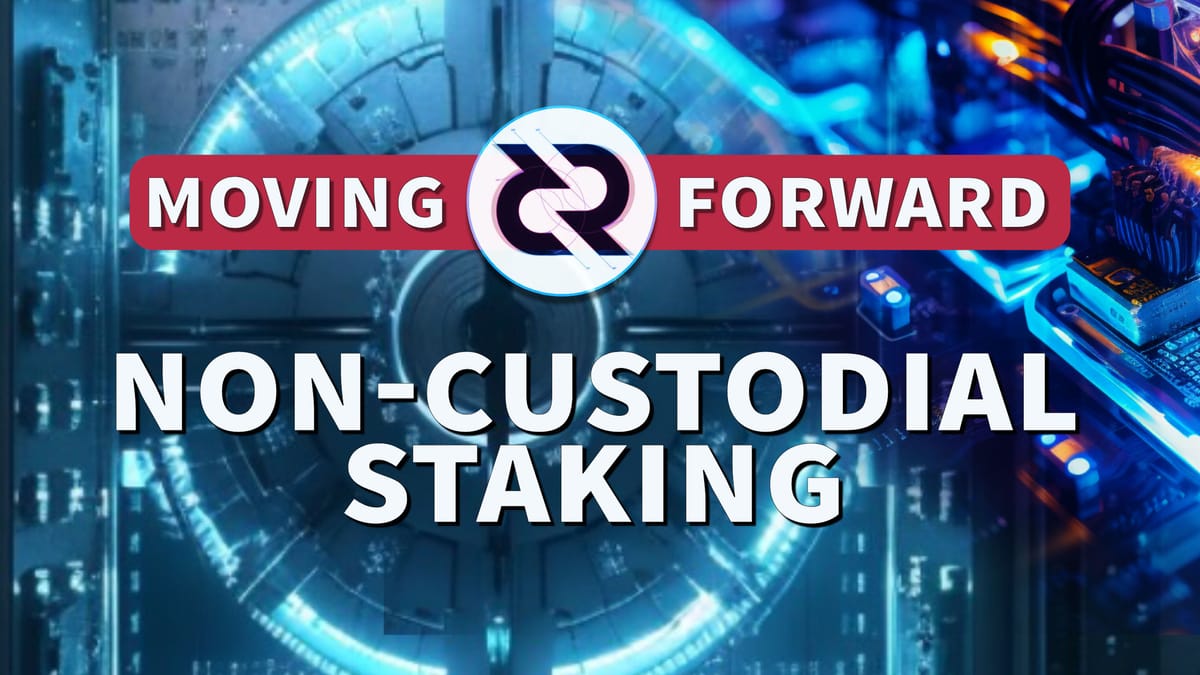
LISTEN TO THE PODCAST:
When it comes to passive income, why should the miners have all the fun and rewards!? If you offer something valuable to a project, you should be incentivised. Holding and hoping the coin will go up in value shouldn’t be the only incentive. I consider long-term holdings like a traditional saver account, if you’re holding you should be earning interest.
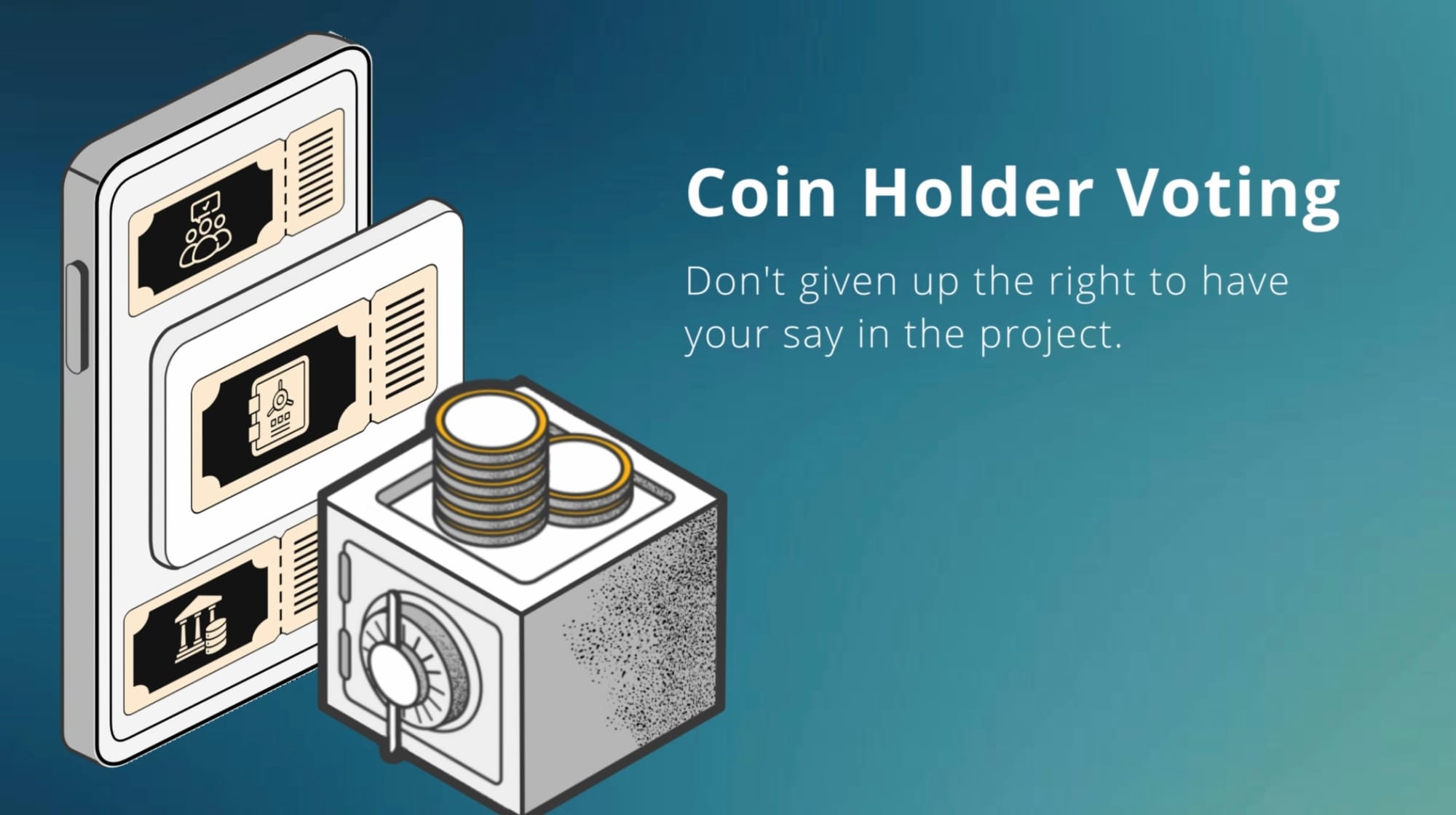
Rewards & Income:
- Mining rewards
- Staking / Interest
- NGU reward
- DAO earnings
When you stop and think about it, coin holders are the backbone of most crypto projects, sometimes referred to as hodlers (Hold On For Dear Life). This is because they have a long-term conviction, incentivising people for holding should be a core mechanism.
Decred built its project around the belief that coin holders should have the final say on every decision made. These are the people who have the most to lose, so they should be the ones signing off on every advancement to the protocol — proposals, consensus changes and spending.
Proof of stake has been around for a long time at this point. Decred designed its protocol to avoid the issues associated with pure POS blockchains. Decred’s hybrid mechanism mitigates against the majority of these issues by emphasising the theory of “skin in the game”.
Diluting POS
Pre-mines, Rewards, & Voting Power
Proof of stake can be contentious if it gives too big an advantage to early adopters and insiders. A lot of proof of stake protocols were built around giving the initial teams, promoters, and investors a large portion of pre-mined coins, sometimes greater than 50% of the total supply. This gives a lot of voting power for very little conviction or investment. Which also makes it near impossible to dilute as the project grows, and they gain a larger majority of the stake reward. If the protocol doesn’t have a maximum supply cap, this dynamic can go on permanently.
Decred gave its development team and initial community just 8% (1.68 million coins) of the total coin supply. This was enough to secure the chain, but not enough that these initial members couldn’t get diluted as the project progressed. This dilution effect continues as the block reward constantly reduces over time and as Decred’s staking mechanism, DCR Tickets, becomes more valuable.
As a final note. In the early days of Decred, the proof of stake reward was incredibly low, just 30% of each block, which also aided in diluting the initial stakeholders and getting new coins distributed to more individuals. As a contrast, most pure POS systems give 100% of the block reward to their stakeholders, which further intensifies their stronghold and makes it harder to dilute their power.
Delegated POS
It requires significant effort to run POS, and in most cases the staked amount has to be online constantly to participate and gain the rewards. To get around this issue, a lot of coin holders delegate their coins to a “delegated staking provider” that is online permanently and will vote on their behalf.
Delegated POS is a terrible solution for many reasons, but the main one is, it gives a coin holders vote to a third party. Someone who doesn’t, typically, own coins, but gains overwhelming voting power for providing a service. Coin holder voting is essential, and by giving it up so easily, the coin holder has effectively given up the right to have their say in the project. Their votes are now someone else’s, someone who, likely, has very little incentive to act in the best interests of the coin holders.
Decred doesn’t do delegated POS, but it does offer “Voting Service Providers” (VSP). These providers never gain access to your coins and never get to vote on your behalf. VSP’s are there, specifically, to keep your DCR ticket online. In the Decred protocol, coin holders get the final vote, not an arbitrary entity.
Self-custodial POS
Decred’s stakeholders can solo stake using their hardware or use a voting service provider (VSP), both of which are non-custodial or self-custodial solutions. During the entire process of staking, on Decred’s layer 1 protocol, the coin holder never loses or gives up control of their coins. Your coins are never at risk during this process, and no-one but you has access to them.
Decred has built the tech, so coin holders are in full control. Your coins, your vote!
Limited supply POS
Another interesting thing about Decred’s POS is, just like the dcr coin, it’s in limited supply. Decred’s proof of stake is called a “dcr ticket” and the system aims to keep the ticket supply at approximately 41,000 tickets. This means, as tickets become more popular, they become more expensive.
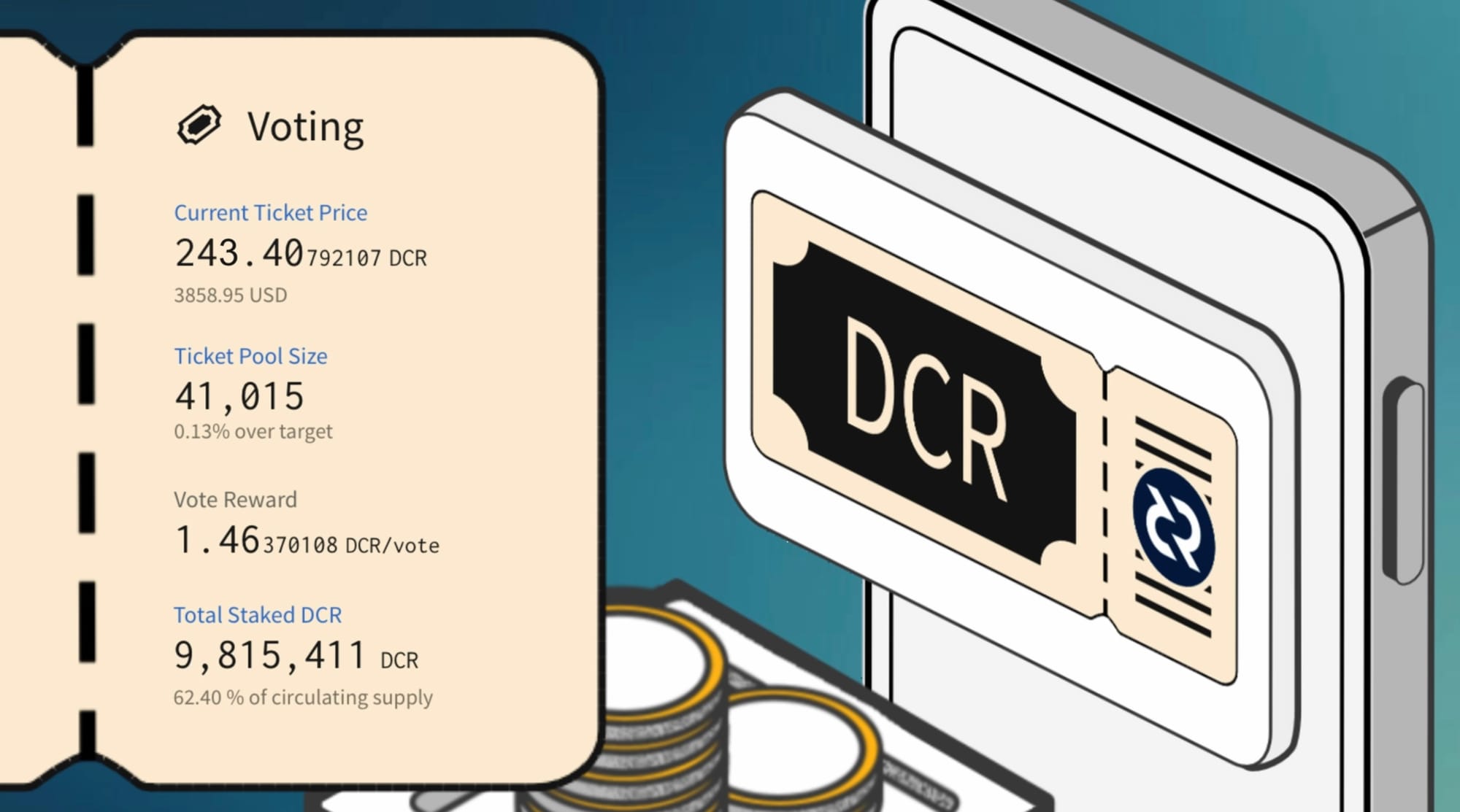
At the time of writing, the dcr ticket price is 243 dcr. And the total dcr staked is 9.8 million dcr, which is 63% of the current supply.
Decred is one of the most sovereign blockchains existing because coin holders matter.
Summary
Holding Decred is like owning a piece of a company or country. By holding DCR you’re given the right to vote, you’re given the right to govern, and you’re given the right to choose the path and outcomes of your sovereignty.
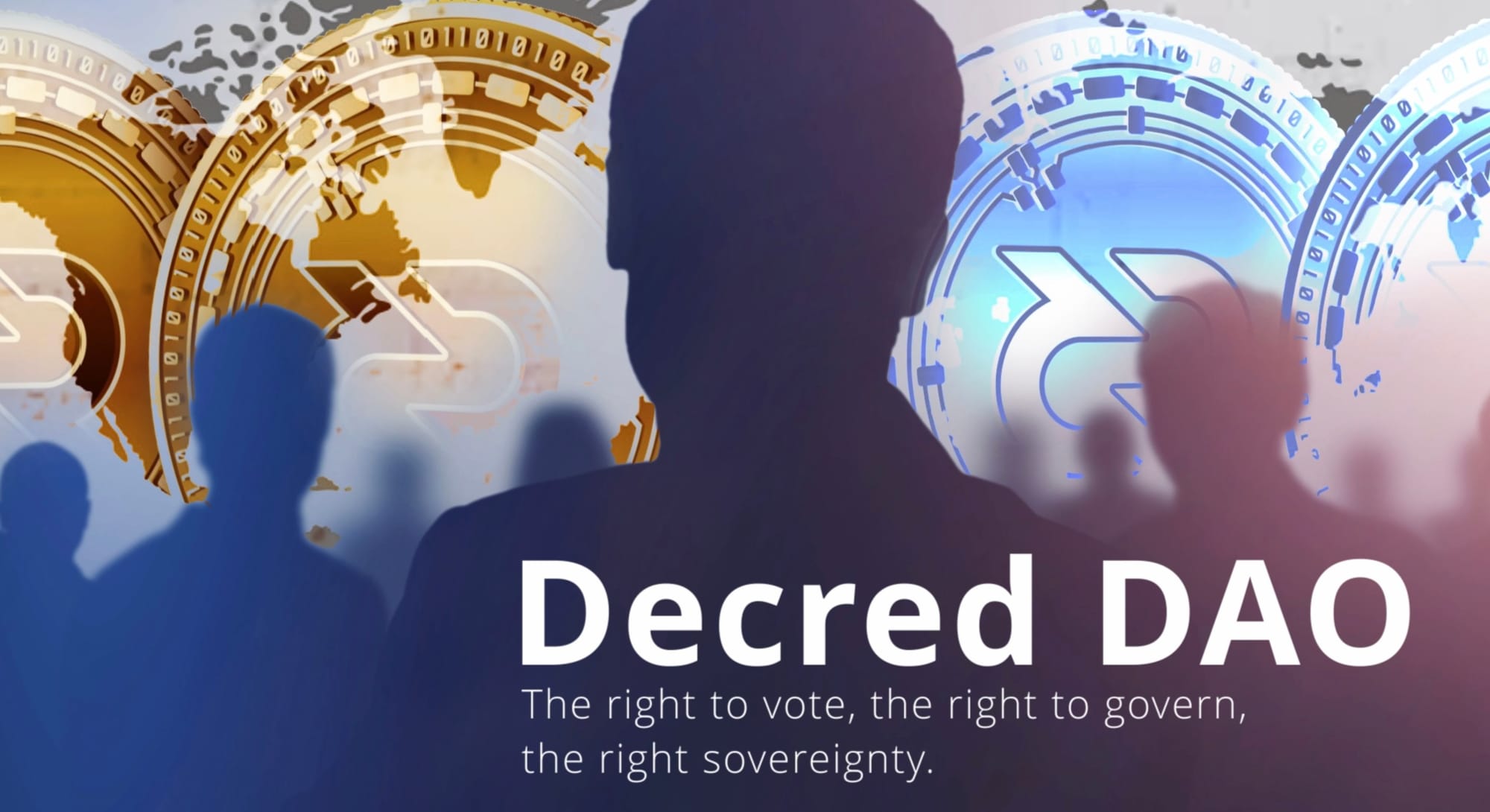


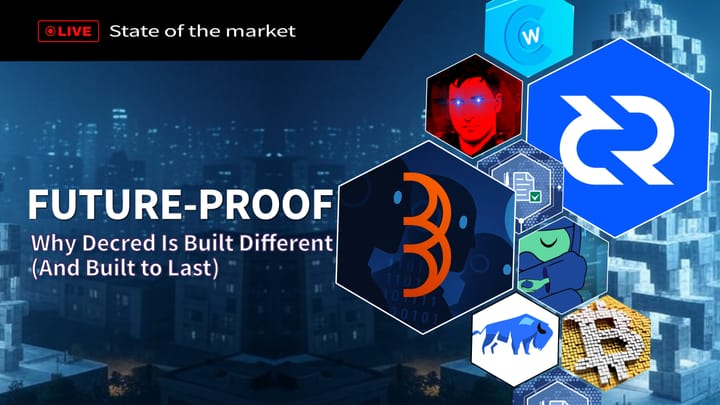
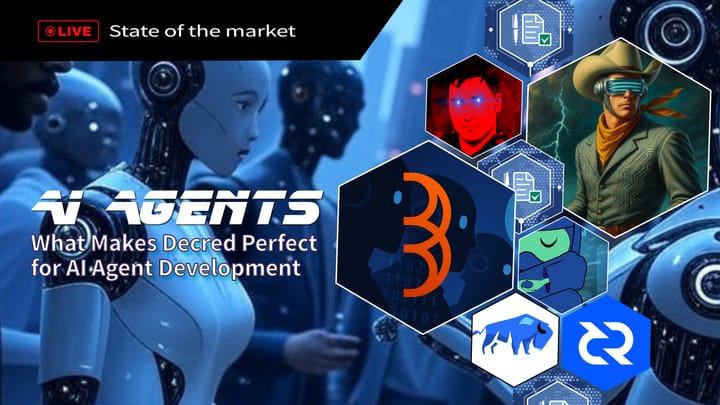
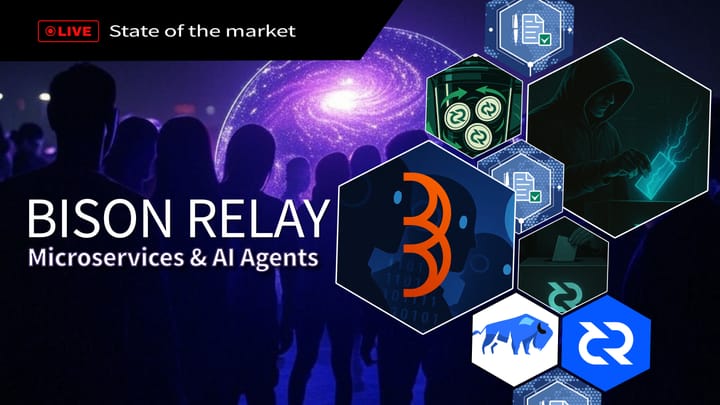
Comments ()